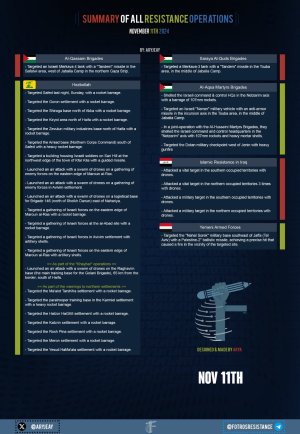- Jan 16, 2011
- 15,140
- 36,939
By contrast, Zionists had, from the onset of settlement, intentionally alienated Palestinians from the labor force and replaced them with Jewish settlers.
Also, there's differences between SA and Palestine as well when it comes to their liberation movements and struggles.
Exploited Black workers were able to play a major role in making the SA ungovernable through labor strikes because of white South Africans’ substantial economic dependence on their labor.

Facing dire labor shortage, Israel recruits migrant workers from India
Indians are rushing to apply for jobs in Israel, where the war has driven other migrant workers away and kept Palestinian workers from entering the country.
Looks like Israeli society is dependent on labor offered by non-Israelis. Prior to the war, up to 150k Palestinians worked in Israel.
You won't tell me that prior to the last few years, this reliance on Palestinian labor, coupled with a legislative presence in the Israeli government (Arab Israeli parties) that did not exist for Black South Africans (the ANC was banned as a political party) could not have been the genesis of a non-violent movement.
My comment didn't say anything about blueprints or strategy. All it said was that when it becomes too costly to stay in a place where you're not welcome, you pack up your stuff and leave. How you make someone feel the cost is up to you. However, when 80 years of armed struggle gets you less real allies, less territory, and more incertitude, and when your new friends care more about their own proxy battles than your cause, would you not revisit the strategy?There is no blueprint for implementing decolonisation projects successfully. There is no single authoritative strategy on offer for those involved in struggles for justice.
Israel will lead to its own demise as well, and the U.S. can only keep giving excuses to support and drive this settler colonial project because the above will economically drain them and continue to make Israel an eventual pariah state.
From what I see, the only thing that can threaten Israel right now and in the near future is their neighbors being more powerful than them. For the time being, this is faaaar from happening with Egypt, Saudi Arabia, and Jordan favoring a calmer relationship. As the world becomes more reliant on microelectronic devices, Israel has positioned themselves very well to benefit from it (they have the kind of human capital that attracts chip making companies), their MIC is based on tech, and they don't care who they sell that tech to.
The last few days have shown that Israel, despite what you want to believe about them being a US colonial project, marches to their own beat. They can confidently project power in the busiest trade transit area of the world, and that makes them an attractive ally for any country that vies for the title of superpower. Therefore, I have a hard time seeing the Russians and the Chinese refusing to trade their veto power for the safety of their cargo ships in the region and access to Israeli technologies/know-how if the US were to take a harder stance on Israel.
Palestinians had not achieved the same political gains by the time they arrived at the negotiation table as SA's apartheid resistance
Pro-Palestinian parties have had representation in the Knesset. The ANC lost its legal status shortly after being created, and didn't regain it until after the end of Apartheid. If anything, Palestinians have had a much bigger political muscle to flex than the ANC, internally and internationally (with the UN: members of the ICJ, special refugee status, support from most UN members).
Black South Africans not only fought the Apartheid regime from overseas, but they had to bring to their side European populations and institutions that were brought up to believe that Africans needed European chaperones because they couldn't handle the responsibilities of self-determination.
Will you ever mention that this exile wasn't quiet, and that the PLO brought trouble to those countries? Will you mention what made those former allies prioritize their own internal stability over Palestinian self-determination? Can you imagine if South Africans in exile in Zimbabwe decided to use violence to coopt the foreign policy direction of their host country?and the PLO’s long exile had made Palestinian political and armed resistance heavily dependent on regional forces that were increasingly colluding with Israel and imperialist forces.
When you say that nobody can tell a people how to fight their struggle, you also have to realize that you can't run away from the consequences of the actions you choose to take.



































